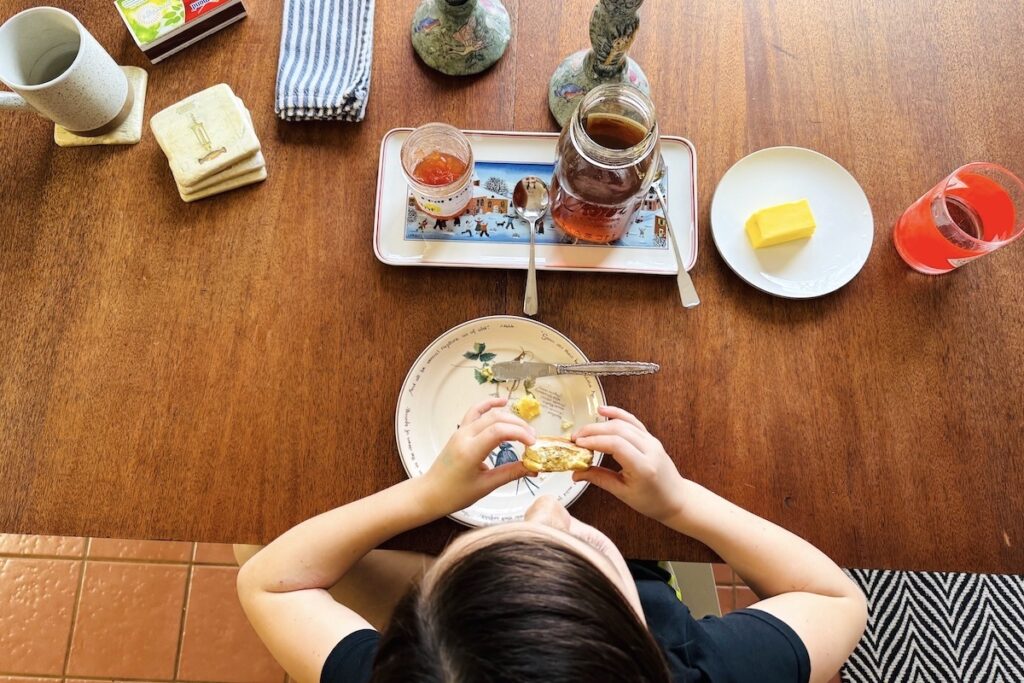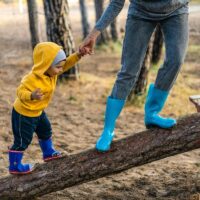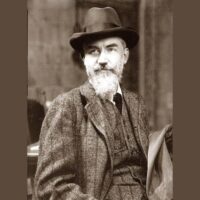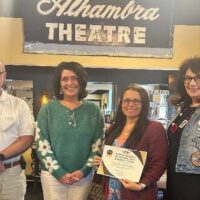Editor’s Note: This column first ran in the Sunday Brew newsletter. To get more stories like this before they run on our website, subscribe to Hoptown Chronicle’s newsletters.
Over the past couple of weeks I’ve been checking in with a graduate school friend who lives in Altadena, California, where at least 17 people died in the Eaton Fire that has destroyed more than 9,000 structures — homes, businesses, schools and churches — in that community.
Through the emails we have shared, I learned my friend and her mother are safe and their home still stands. I was almost afraid to check in. So many people have lost everything, and their stories of escaping neighborhoods with minutes to spare are terrifying.
A news story I read this weekend looked at what residents took with them when the fire forced them to leave home.
“For those who lost their homes, the possessions they packed in the hurry to evacuate are now all they have from the time before the fire,” Emma Bowman and Ryan Hellman wrote for NPR. “Decisions about what to take were rushed and, in some cases, couldn’t be made at all.”

One teenager grabbed his homework but left behind his guitar because he thought the instrument might be hassle for anyone that provided his family with temporary housing. His mother, a teacher, scooped up books and a scarf that students had made for her Christmas gift. One woman took her planner so she’d be able to manage business appointments in the coming weeks and months. Some of the people interviewed for the story spoke about the things they left behind. A musician lost notebooks full of song lyrics he wrote.
Even before I read that story, I had been thinking about what I would try to take from my home if a natural disaster forced me to leave in a hurry with little chance I would be able to return to four walls and a roof. Surely I would grab family photos. My dad’s oil painting of a western meadowlark. My grandmother’s framed needlepoint of flowers. A few books my mother gave me.
But these are the intentions of someone who isn’t actually fleeing for her life. None of us know how we would react and what would seem important to save in a moment of terror.
Another article I read this weekend gave a different view of what we might keep from a home lost to a fire or any tragedy. Maybe what’s most important is not the things but the stories that we carry from a place.
I spent the better part of this weekend with our daughter, Renee, and youngest grandchild, 10-year-old Emmy, who came to town for a friend’s engagement party. (Hence, the late delivery of this newsletter.)
It takes a visit like this to be reminded of stories held in the Hopkinsville house that has been our home for 27 years. Emmy was interested in the Christmas photo cards still tucked to the front of an antique cabinet in our kitchen, so Renee spent some time over breakfast explaining how we knew the people in the photos and which ones Emmy had met the previous night.
We talked over biscuits and honey and preserves that I made for Emmy, and we made more memories in this house that I love.
Here’s hoping many of you also had a weekend filled with the things that matter.
Jennifer P. Brown is co-founder, publisher and editor of Hoptown Chronicle. You can reach her at editor@hoptownchronicle.org. Brown was a reporter and editor at the Kentucky New Era, where she worked for 30 years. She is a co-chair of the national advisory board to the Institute for Rural Journalism and Community Issues, governing board past president for the Kentucky Historical Society, and co-founder of the Kentucky Open Government Coalition. She serves on the Hopkinsville History Foundation's board.





